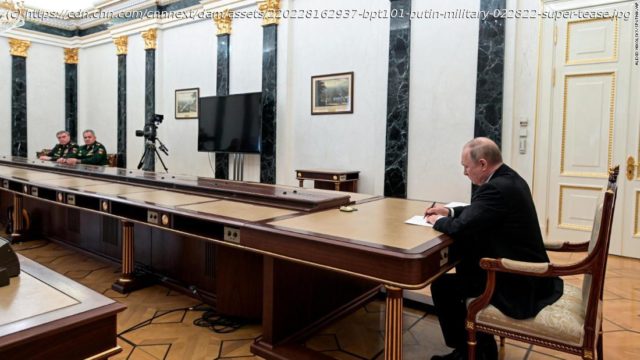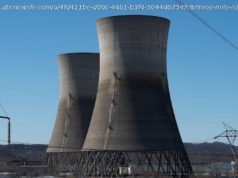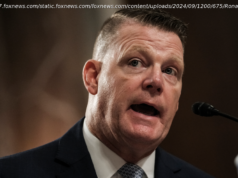Russian President Vladimir Putin’s rhetoric has intensified to include direct reference to his nation’s vast nuclear stockpile, placing the country on its highest state of alert and forcing an appraisal of the equilibrium that keeps nuclear-armed countries from destroying themselves and the world.
Facing stronger-than-expected resistance from Ukrainians, Russia is also seeing intensified isolation from much of the rest of the world: More of Russia has been cut off from the world banking system. The value of the ruble has cratered, losing about a quarter of its value. The Russian Central Bank more than doubled interest rates to 20%. Even some Russian oligarchs are pressuring President Vladimir Putin to end the war. But Putin’s rhetoric has also intensified to include direct reference to his nation’s vast nuclear stockpile, placing the country on its highest state of alert and forcing an appraisal of the equilibrium that keeps nuclear-armed countries from destroying themselves and the world. What did Putin say? « Top officials in leading NATO countries have allowed themselves to make aggressive comments about our country, therefore I hereby order the Minister of Defense and the chief of the General Staff to place the Russian Army Deterrence Force on combat alert, » Putin said in a televised meeting with top Russian defense officials on Sunday. Russia’s nuclear weapons are a part of its « deterrence » strategy. Russia took control of arms from other former Soviet republics, including Ukraine and Belarus, in the 1990s. Now Russia has invaded Ukraine — and Belarus, which is allied with Moscow, plans to renounce its non-nuclear status and could theoretically allow Russia to bring nuclear weapons back into the country. Should people be worried? President Joe Biden had a simple answer on Monday when asked by reporters if Americans should be concerned about the prospect of nuclear war. « No, » he said. Is this an unprecedented nuclear threat? The threat isn’t unprecedented. I talked to Matthew Fuhrmann, who along with Todd Sechser, wrote the 2017 book, « Nuclear Weapons and Coercive Diplomacy. » They documented 19 instances of nuclear threats and coercive language in the post-World War II era. These include Soviet leaders like Nikita Khrushchev telling the then-US ambassador in 1959, « The West seems to forget that a few Russian missiles could destroy all of Europe. » They also include former President Richard Nixon, employing his madman theory of foreign policy, wanting the North Vietnamese to be told his aides believed, « We can’t restrain him when he’s angry — and he has his hand on the nuclear button. » Will Putin’s threats work now? « The track record for nuclear blackmail is not great, » said Fuhrmann in an email. « In many cases, attempts to bully other countries by raising the specter of nuclear war plainly failed, like in Khrushchev’s threats over Berlin. In other cases, like the crises between the US and China over Taiwan in the 1950s, a country got its way after making nuclear threats but it wasn’t clear that those threats played a decisive role.






